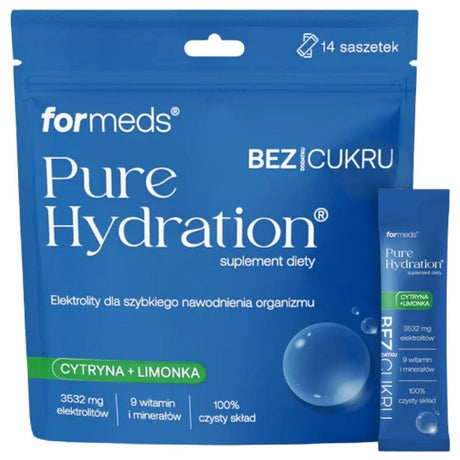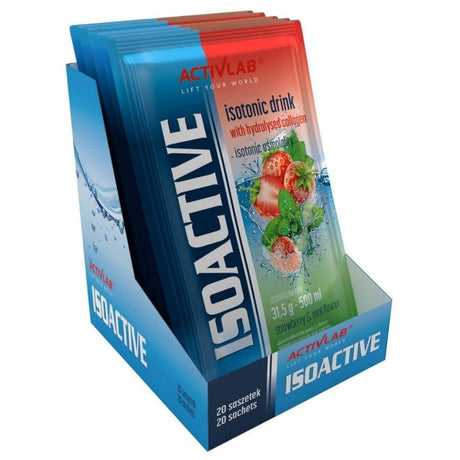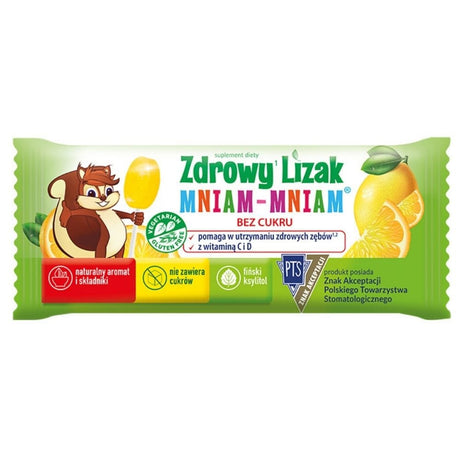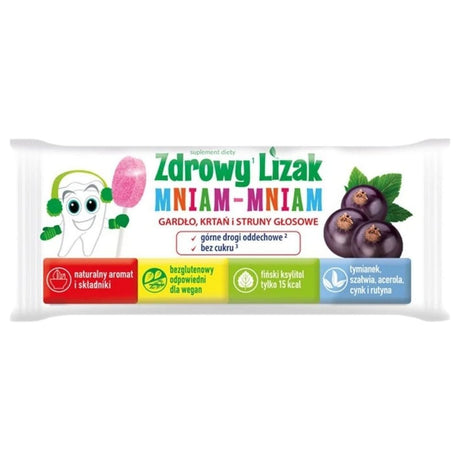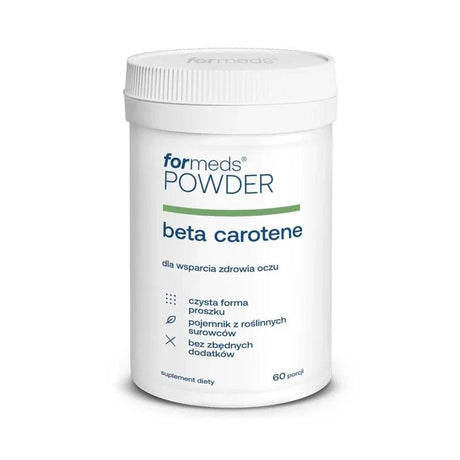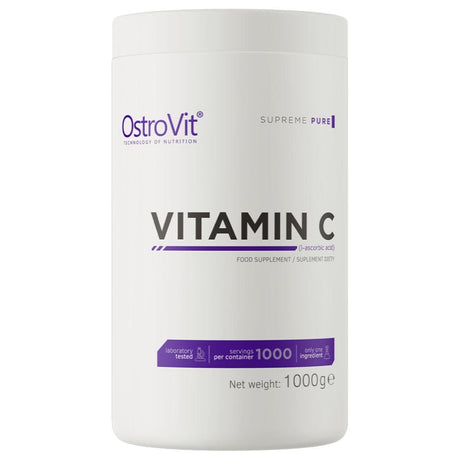Life Extension
Life Extension Biotīns 600 mg - 100 kapsulas
Parastā cena €8.29Vienības cena€0.08 par gabaluFormeds
Formeds Pure Hydration elektrolīti, citrons + laims - 14 paciņas
Parastā cena €10.39Vienības cena€0.74 par gabaluSalvum
Protego Elektrolīti + multivitamīni, Aveņu-granātābolu - 20 šķīstošās tabletes
Parastā cena €2.69Vienības cena€0.13 par gabaluPurelab Marek Skoczylas
Skoczylas C vitamins Wild Rose, pulveris - 300 g
Parastā cena €25.69Vienības cena€85.63 /kgDr. Jacob's
Dr. Jacob's Sārmains pulveris pH Balance PLUS - 300 g
Parastā cena €20.39Vienības cena€67.97 /kgPharmovit
Pharmovit ADEK Junior Oil Active - 30 ml
Izpārdošanas cena €10.61 Parastā cena €11.79Vienības cena€35.37 /100mlActivlab
Activlab Isoactive Isotonic ar Ashwagandha, Persiku ledus tēja - 20 paciņas
Parastā cena €7.09Vienības cena€0.35 par gabaluActivlab
Activlab Isoactive Isotonic ar kolagēnu, St RAW ogas un piparmētras - 20 paciņas
Parastā cena €7.09Vienības cena€0.35 par gabaluAliness
Aliness PrenaCare ® Start sievietēm - 30 paciņas
Parastā cena €10.19Vienības cena€0.34 par gabaluStarpharma
Starpharma Veselīga konfekte ar C un D vitamīnu, Citrons - 6 g
Parastā cena €0.59Vienības cena€98.33 /kgNow Foods
Now Foods D3 vitamīns 5000 SV, Piparmētra - 120 košļājamās tabletes
Parastā cena €11.99Vienības cena€0.10 par gabaluQuicksilver
Quicksilver Liposomālais metil B-12 - 30 ml
Parastā cena €51.89Vienības cena€172.97 /100mlVitaler's
Vitaler's D3 vitamīns Forte 2000 SV, pilieni - 30 ml
Parastā cena €6.29Vienības cena€1.86 /mlMito Pharma
Dr Enzmann Vitamīns B12 MSE MAX - 120 kapsulas
Parastā cena €49.79Vienības cena€0.41 par gabaluSolgar
Solgar C vitamīns - Dzērveņu avenes 500 mg - 90 košļājamās tabletes
Parastā cena €17.69Vienības cena€0.20 par gabaluJarrow Formulas
Jarrow Formulas Vitamīns K2 MK-7 90 mcg - 60 mīkstās tabletes
Parastā cena €25.49Vienības cena€0.42 par gabaluOstrovit
Ostrovit Supreme Pure Vitamin C, Pulveris - 1000 g
Izpārdošanas cena €11.06 Parastā cena €12.29Vienības cena€11.06 /kg
Izpratne par vitamīnu vitālo nozīmi veselībā un labsajūtā
Vitamīni ir būtiski organiski savienojumi, kuriem ir būtiska nozīme optimālas organisma darbības uzturēšanā. Šīs vitāli svarīgās uzturvielas ir neaizstājamas dažādos fizioloģiskos procesos, un to trūkums var izraisīt nopietnas veselības problēmas., Ja organismā trūkst pietiekams daudzums vitamīnu, cilvēks var izjust vispārēju nogurumu, garastāvokļa traucējumus un novājinātu imunitāti, kas padara to uzņēmīgāku pret slimībām.,
Lai gan augļi un dārzeņi ir galvenie vitamīnu avoti, dažu uzturvielu trūkums ir biežāk sastopams.. Piemēram, D vitamīna, ko organisms sintezē saules gaismas ietekmē, rudens un ziemas mēnešos, trūkst. Šādos gadījumos, uztura bagātinātāji var efektīvi palīdzēt uzturēt pietiekamu vitamīnu daudzumu.
Vitamīnu klasifikācija: Ūdenī šķīstošie un taukos šķīstošie vitamīni
Vitamīni tiek iedalīti divās galvenajās grupās, pamatojoties uz to šķīdību:
- Ūdenī šķīstošie vitamīni: Šajā grupā ietilpst biotīns, pantotēnskābe, un B kompleksa vitamīni, piemēram, B12 un B1. Šie vitamīni ir saistīti ar vielmaiņas izmaiņām audos un darbojas kā koenzīmi.
- Taukos šķīstošie vitamīni: Šajā kategorijā ietilpst A vitamīni, K , un E. Atšķirībā no ūdenī šķīstošajiem vitamīniem, šiem vitamīniem ir regulējošas funkcijas, un tiem ir tendence uzkrāties organismā.
Vitamīnu nozīme grūtniecības laikā
Grūtniecība ir kritisks periods, kurā nepieciešams stabils un sabalansēts uzturs augļa attīstībai. Lai gan ideāli ir iegūt vitamīnus no pārtikas avotiem, nodrošināt perfektu uzturu var būt sarežģīti. Tāpēc daudzas topošās māmiņas izmanto vitamīnu piedevas, lai nodrošinātu pietiekamu uzturvielu uzņemšanu.
Galvenie vitamīni grūtniecēm ir šādi:
zxc119- D3 vitamīns : Deficīts grūtniecības laikā ir saistīts ar paaugstinātu priekšlaicīgu dzemdību, zema dzemdību svara, un preeklampsijas risku.
- Folijskābe: Nepietiekams tās daudzums var izraisīt anēmiju un palielināt nervu caurulītes defektu risku. Pareiza uztura papildināšana var samazināt šo risku līdz pat 70%.
Kam ir izdevīgi lietot vitamīnu piedevas?
Lēmums lietot vitamīnu piedevas ir atkarīgs no dažādiem faktoriem un individuālajām vajadzībām. Īpašas grupas, kuras var gūt labumu no vitamīnu piedevām, ir šādas:
- Personas ar saslimšanām, kas pasliktina vitamīnu uzsūkšanos
- Cilvēki, kas ievēro diētu, kura var neatbilst ikdienas vitamīnu prasībām
- Sportisti, kas nodarbojas ar intensīvām fiziskām aktivitātēm, kurām nepieciešams papildu uztura atbalsts
- Grūtnieces ar paaugstinātām uzturvielu prasībām
Vitamīnu kompleksi ir efektīvs veids, kā novērst to trūkumu un mazināt ar to saistītos simptomus. Augstas kvalitātes uztura bagātinātāji tablešu vai kapsulu veidā nodrošina optimālu uzsūkšanos, palīdzot stabilizēt vitamīnu līmeni organismā un atbalstīt vispārējo veselību un labsajūtu.



